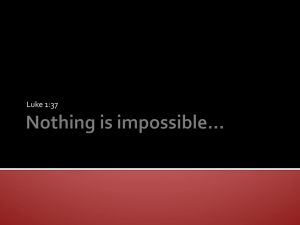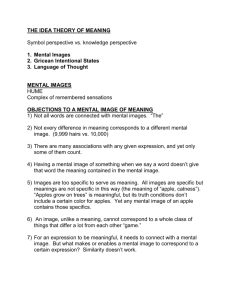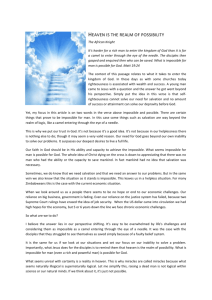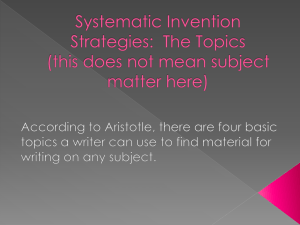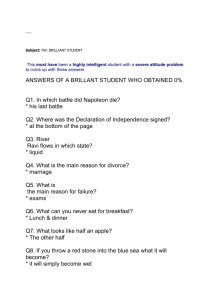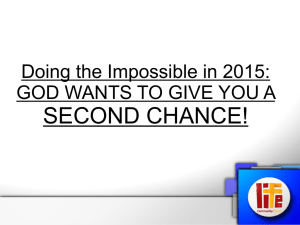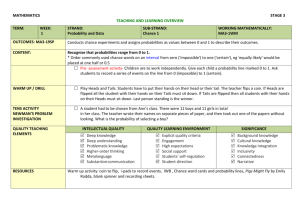Contract Law: Performance & Discharge Sample Answers
advertisement
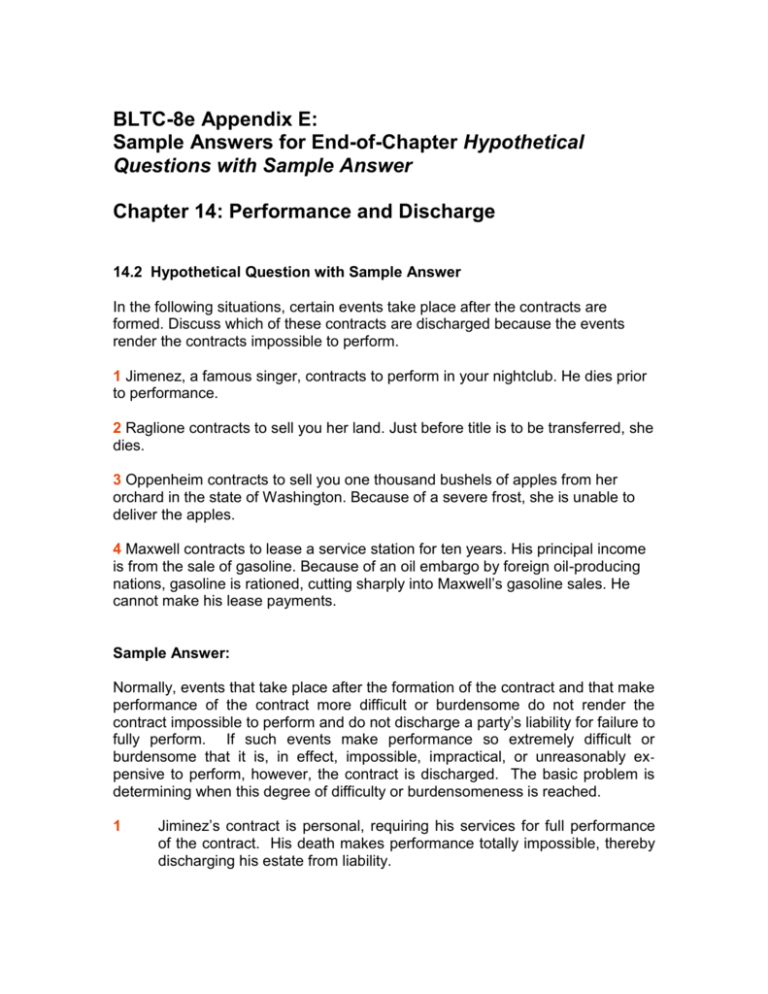
BLTC-8e Appendix E: Sample Answers for End-of-Chapter Hypothetical Questions with Sample Answer Chapter 14: Performance and Discharge 14.2 Hypothetical Question with Sample Answer In the following situations, certain events take place after the contracts are formed. Discuss which of these contracts are discharged because the events render the contracts impossible to perform. 1 Jimenez, a famous singer, contracts to perform in your nightclub. He dies prior to performance. 2 Raglione contracts to sell you her land. Just before title is to be transferred, she dies. 3 Oppenheim contracts to sell you one thousand bushels of apples from her orchard in the state of Washington. Because of a severe frost, she is unable to deliver the apples. 4 Maxwell contracts to lease a service station for ten years. His principal income is from the sale of gasoline. Because of an oil embargo by foreign oil-producing nations, gasoline is rationed, cutting sharply into Maxwell’s gasoline sales. He cannot make his lease payments. Sample Answer: Normally, events that take place after the formation of the contract and that make performance of the contract more difficult or burdensome do not render the contract impossible to perform and do not discharge a party’s liability for failure to fully perform. If such events make performance so extremely difficult or burdensome that it is, in effect, impossible, impractical, or unreasonably expensive to perform, however, the contract is discharged. The basic problem is determining when this degree of difficulty or burdensomeness is reached. 1 Jiminez’s contract is personal, requiring his services for full performance of the contract. His death makes performance totally impossible, thereby discharging his estate from liability. 2 The passage of title to this land can be by Raglione or any person so authorized. Therefore, the death of Raglione does not render the contract impossible to perform, because a representative of her estate can perform it in her place. The contract is not discharged. 3 The contract called for apples to come from a specific orchard. Through no fault of Oppenheim’s, the specific subject matter of the contract is destroyed by the frost. Therefore, Oppenheim cannot deliver the apples called for in the contract, rendering the contract impossible to perform. 4 Major discussion should center on the doctrine of commercial impracticability or frustration of commercial purpose. For the doctrine to be applied, most courts would need proof that either the rationing frustrated the very purpose both parties had in mind in making the contract, or that there was an implied condition that the premises were to be used for the sole purpose of selling products no longer available, or that the events rendered the anticipated performance extremely difficult or costly. In cases involving rationing during World War II, some courts held that the rationing merely created a hardship, not an absolute prohibition, and the lease contracts were enforced even though performance was more burdensome.
